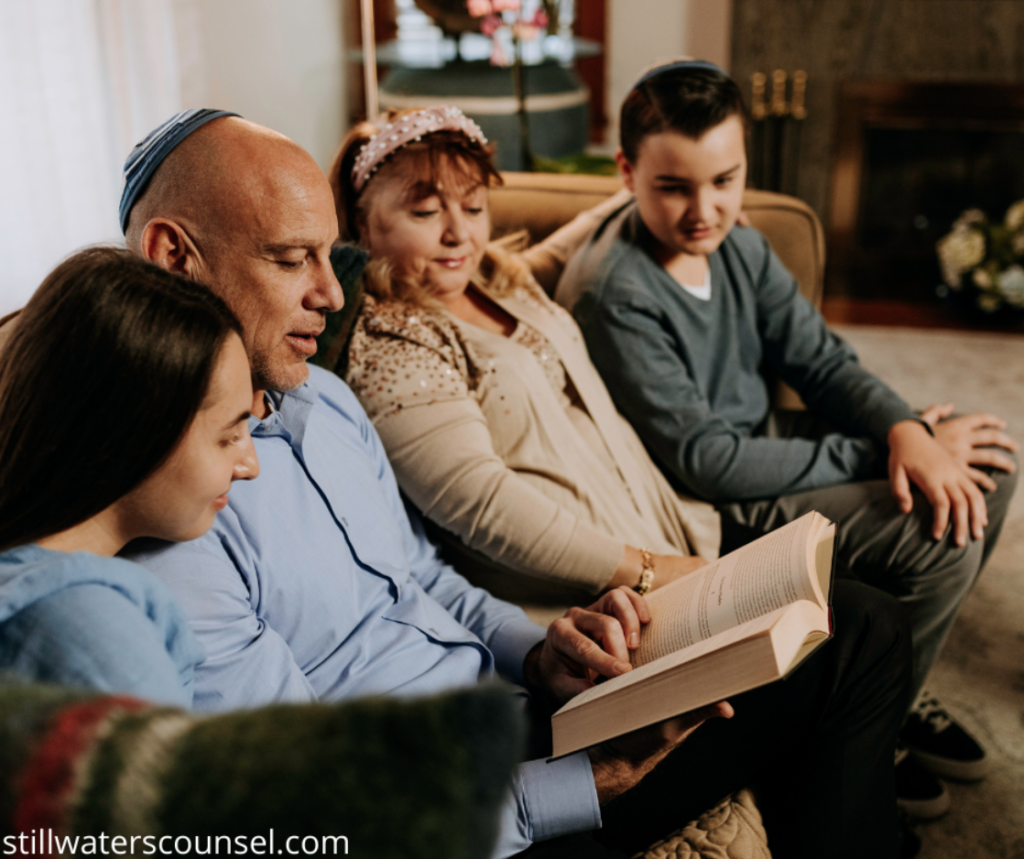A happy home is an important part of having a content life. However, every family goes through struggles and communication issues. I see conflict in families all the time as a licensed marriage and family therapist, so I want to share with you tools I often use with families experiencing conflict.

Before I go into the tools, I want to explain the two types of parenting styles that most often lead to disputes between parents and their children:
The Overly Strict Parent – This one is pretty straightforward. “Helicopter parents” or parents who rule with an authoritarian edge are likely to exhibit control over their children. This is often done out of concern, but can lead to children feeling oppressed and defeated. The children may feel suffocated and unable to express themselves in their home.
The Lenient Parent – On the opposite spectrum we have the lenient parent. While some parents have a more friendship-like approach to their childrearing, this style of parenting can also be detrimental to a child’s wellbeing. Children may feel insecure about their relationship with their parents. If there are no rules or irregular rules in their household, they may start feeling emotionally unsafe and confused about their own actions and identity.
Remember, the more consistent a parent is, the more cooperative the child will be.

How do you get children to cooperate? Well, let me tell you about my 3 House Rules. The 3 House Rules are respect, responsibility, safety. The great thing about the 3 House Rules is that anyone can implement it. When established and adhered to consistently, can lead to a more harmonious household.
Here are the steps:
Firstly, set up a family meeting. Get a whiteboard or a large piece of paper and pen.
Write the word “RESPECT” and under it, take turns writing down rules that pertain to respect. It is important to allow everyone a chance to pitch in a rule regarding respect. For example, parents may expect children to not yell at them. An example for children could mean they request no spankings as a form of punishment. While you may think your children’s demand may be ridiculous, please keep in mind that your children are taking this moment to be vulnerable, so let them speak. Healthy compromises can be made. Allowing the children the ability to set reasonable rules for the parents is a crucial part of the process and a major contributor to the success of the house rules.
After you’re done with RESPECT, draw another word, “RESPONSIBILITY” on the board/paper. What does responsibility mean for your family? Even young family members can partake in responsible behaviors and tasks. HERE is a list of age-appropriate chores for ages two and up. Parents may expect children to be responsible for completing chores and getting good grades, while children may expect parents to fulfill rules like not breaking promises and keeping them safe. This can be tailored to each family.

Lastly, but not least by any means, is safety. Yep, write “SAFETY” in big letters. This one may cause some discomfort to verbalize but will clearly communicate what is and is not acceptable in the family. What are safety measures that need to be addressed in your family? For young children that could mean not hitting their sibling. As a teen it could mean promising to not sneak out at night or drinking and driving.
To wrap up the 3 House Rules, the last thing to discuss is consequences. Not adhering to the first two principles should be communicated as a lack of cohesion in the family, which can break down trust. E.g. “When you don’t do your chores, it lets down the other members of the house.” Out of the 3 house rules listed above, breaking rules of safety should hold a higher consequence if violated. If safety is breached, clear consequences need to be communicated and followed through.
Noticing a pattern?
When you collaborate as a family and communicate openly about the values you care about, the stronger your bonds will be. The goal of these exercises is to teach children to be working members of society. Most children will be good community members if given the opportunity. We want to strengthen bonds, not weaken them.
Here are some extra pointers for each age group that you may find useful:
Young children
Talk through feelings with your child. Let them open up to you. If they act up and need a time out, please keep the time out to a minimum. Generally, one minute per year (up to age 7). After 5 years old, the parent can have a time out from the child or go to a different room. At this age, you can say, “I need some space from you right now.”
Teenagers
When punishing teenagers, a general rule of thumb is never to ground for more than two weeks. Spending more than two weeks being grounded can possibly be detrimental to a teenager’s health. An even better solution is to think about a teenager’s “currency” for rewards and punishment. Knowing the love languages of your family members is a powerful tool. What may work for one family member, may not work for another.
Older children/adult children
At this age, if adult children are still living in the household the relationship between parent and child should be on more equal footing. Instead of top down authority, think of the relationship to be more like coworkers. Contributing to the household routine and pitching in for chores is essential for a harmonious household. Contributions can be in the form of financial (paying rent/bills), labor (garden work) or acts (doing errands for the family). Safety at this age generally pertains to actions for adult children to keep themselves and their family members safe. At the time of writing this blog, the COVID-19 pandemic is still happening and many families are contending with how to balance safety and socializing.
If you are interested in further reading about dealing with family members of opposing viewpoints, check out my post I wrote about it HERE.
What are your house rules? Do you think I should add anything to my 3 House Rules? I’d love to know your thoughts! If you’d like to connect, you can add me on Instagram or like my Facebook page for more updates

It’s an amazing feeling while reading articles related to kids because kids are our future. So we should take care of them carefully. I am also working in “The British School of Etiquette” where we meet so many kids and try to teach them the best things of life that can help them in future.